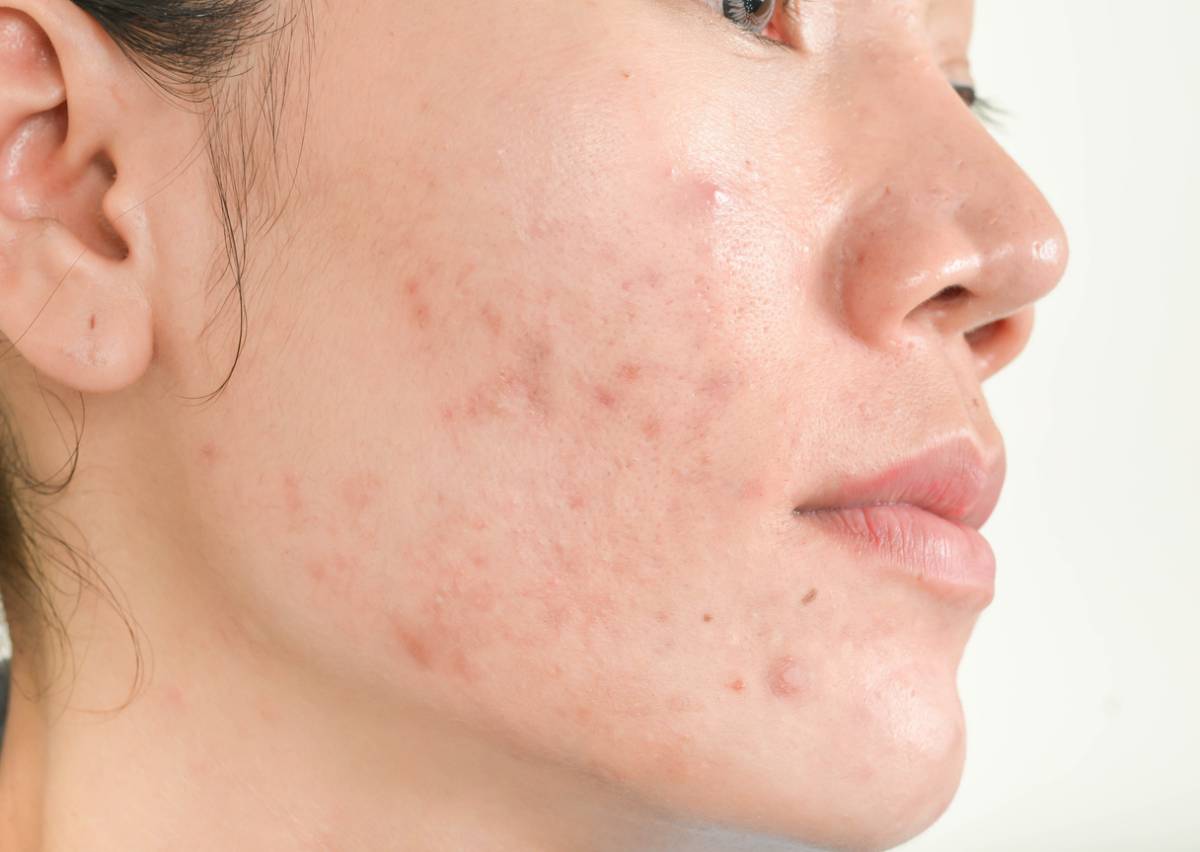For many people, dealing with acne is more than simply an adolescent struggle. More often, it is an annoyance that can continue for a lifetime. Professional acne services give you access to tailored, highly effective treatments. On one’s own, though, acne scars can prove a major hurdle. If you have wondered, “Why do acne scars develop?“, read on for our explanation.
What Are Acne Scars?
Acne scars develop on the face or body as a direct result of acne breakouts. They both differ from and have similarities to other types of scarring.
Patients can encounter several different types of acne scars. These can range in appearance, size, shape, and severity. Common types of acne scars include:
- Boxcar Scars: Deep depressions in the skin (typically round or oval-shaped)
- Rolling Scars: Take their name from resembling rolling hills. Wavy, uneven indentations.
- Ice Pick Scars: Narrower depressions that resemble ice pick punctures. Typically deeper.
- Hypertrophic Scars: Raised above the skin surface. Typically thicker.
Why Do Acne Scars Develop?
In general, scars result due to damage to deeper layers of the skin. When these tissues are damaged, abnormal healing occurs, which results in a scar. So, while a minor scape can heal like new, deeper damage can lead to permanent scarring.
In the case of acne, this scarring occurs due to the associated inflammation. Acne itself is a bodily inflammatory response in reaction to clogged pores, bacteria, dead skin cells, and more.
When the inflammation associated with acne damages the skin’s deeper layers, it can lead to scar formation. Damage to the skin’s elastin and collagen, in particular, can lead to scar formation. If these proteins rebuild abnormally, a scar may form.
What Puts You at Higher Risk for Acne Scarring?
Millions of people across the US struggle with acne daily. And roughly 90% of teens will have it. But not all of them will develop acne scarring. What makes the difference?
Acne Severity
Surface-level pimples rarely cause acne scars on their own. Instead, deeper lesions such as nodules or cysts tend to create the type of damage that leads to scars.
Patients prone to deeper acne lesions can particularly benefit from a dermatologist’s services. Managing these lesions can significantly reduce your risk of developing acne scars.
Picking, Popping, Squeezing
Earlier, we mentioned that surface-level pimples rarely cause acne scars. That is true, so long as you let them resolve without popping them.
Popping a pimple can seem and feel like a quick fix. However, the action will likely only hurt you in the long run. Damaging an acne lesion means you actually damage your skin.
Popping a single pimple might not guarantee an acne scar. However, repeated small traumas like this can eventually lead to scar formation.
Ineffective Treatment
The first few acne lesions might not prove a risk. But the hundredth? The thousandth? Chronic inflammation from acne can wear down the skin’s tissues. Over time, untreated acne can further increase the risk of forming acne scars.
For millions of people, store-bought acne treatments prove ineffective. Each person’s skin requires a unique balance of nutrients, hydration, and protection. Only by working with a dermatologist can you receive a properly balanced treatment plan. Nonsurgical treatments can include:
- Personalized acne cream formulas
- Recommended diet modifications
- Laser or light-based therapies
Genetics
Your genetics will determine how your body responds to acne lesions. The unfair truth is that some patients may never develop acne scars despite deep lesions. Yet others may see acne scars develop from seemingly minor breakouts.
It depends on how your body heals wounds. If you are prone to abnormal collagen production, you may have an increased risk of acne scars.
Parents who struggle with acne will likely have children with similar challenges. We encourage parents to take their teens to a dermatologist early on in adolescence. Starting treatment sooner rather than later will give them a head start against acne and can help prevent eventual scar formation.
Can You Treat or Remove Acne Scars?
The good news is that acne scars do not mark the end of the road. Modern dermatological treatments now allow patients to see significant improvements in acne scars. Top treatments include options like:
- Microneedling
- Laser skin resurfacing
- Light therapy
Not all acne scars will vanish completely. However, these treatment methods have proven successful in reducing the size and visibility of acne scars (and many other scars).
Overcome Acne with a Professional Dermatologist
A board-certified dermatologist can prove your best bet for dealing with acne. Schedule an appointment at Sarasota IDO to build a tailored treatment plan unique to your skin needs.

